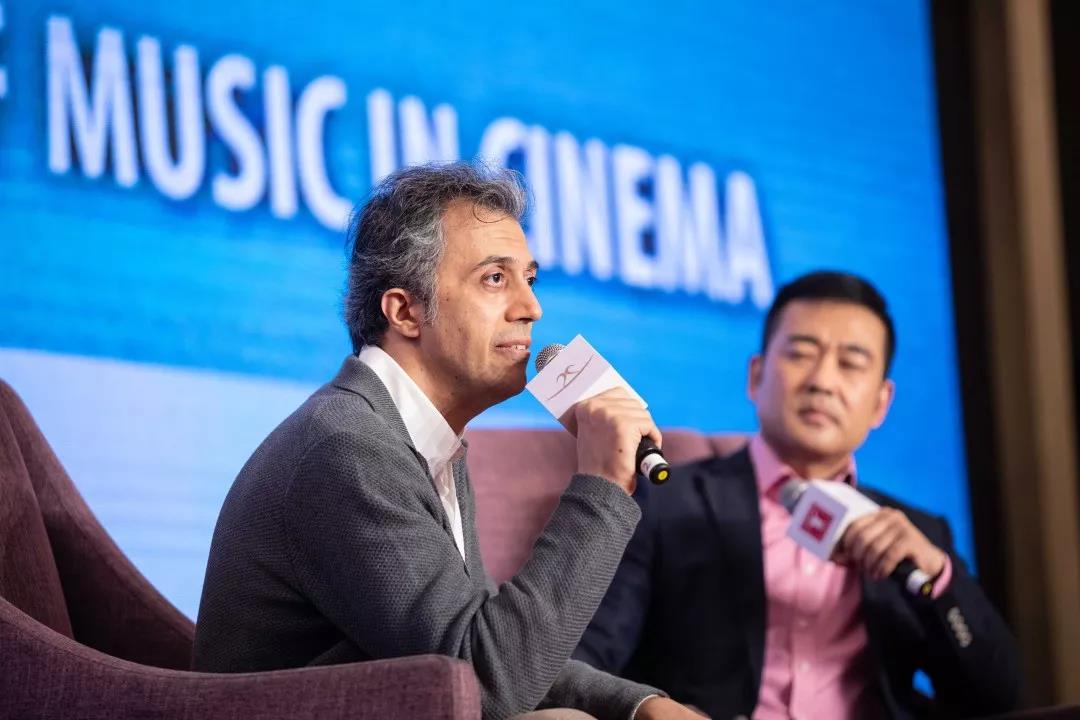2019-06-18
SIFF MasterClass | Peyman Yazdanian: Music Has \"Power\" and Creation Requires \"Silence\"
Iranian film musician Peyman Yazdanian is one of the most prominent and popular film music masters, he has worked with many famous Iranian directors such as Abbas Kiarostami, Jafar Panahi and Asghar Farhadi, has received much attention. At the same time, he has stories working in Chinese films; he has worked with Li Yu and Lou Ye in the works of BUDDHA MOUNTAIN. This afternoon, invited by the Shanghai International Film Festival, Yazdanian gave a wonderful master class with the title "The Power of Music in Movies".
Good Soundtrack Needs to Be "Unconscious"
As we all know, film is the art of images, then how does the music in the film show its power? Yazdani, who straightforwardly said that for the audience sitting in the theater, the music is launching an "attack" at any moment. "If I don\'t want to see this picture, I can turn my eyes away, but for the music and sound, you have no choice, when the music rings, your feelings arise, you can\'t decide what you want to listen to, the music is there, you have to listen!"
Yazdanian said that it is because of the characteristic of film music that many viewers ignore the influence of music on his emotions when watching movies. "I have done many similar experiments in the master classes before, with the same picture and different music, the audience realized that the experience was completely different."
The work of Yazdanian is exactly to try to immerse the audience in this "unconsciousness". "Many people asked me what good film music is, there is only one standard, which is to serve the picture that is being played. If the music can\'t serve the purpose of the pictures, instead, it make the audience out of the film world, the result will be disastrous."
Be Honest and Don\'t Steal the Show
However, for the view that "the soundtrack serves the screen", Yazdanian smiled that this is "easy to say than do". In actual creation, the director and the soundtrack composer often have a dispute because of a picture, a melody, and even become an "enemy" to each other. "I often quarrel with the director, which is normal. Sometimes the director particularly doesn\'t like a certain type of music, and sometimes he would worry that the audience would like the soundtrack too much that they would like the film less." Yazdani, who has dealt with many film masters, bluntly said that many directors are in an anxious state during the creative process. If there is a sign that the soundtrack overshadows the movie, it would strengthen their sense of insecurity, which would break the trust to each other.
Therefore, he specifically warned young people in the industry to clarify the difference between pure musicians and soundtrack composer. "For a musician, you can show your talents anywhere freely, but not in movies, it is not the place where you can show and show off yourself." He hopes that every musician who serves the film will try to maintain his own honesty in face of art, instead of flaunting himself.
Be Good at Learning and Be Modest
Although he has been regarded as a master, Yazdani is still humbly saying, "I am still learner in terms of film soundtrack." He believes that to become a qualified film soundtrack composer, you must first have a modest and acceptive mind, continuously experience and learn in depth all aspects and processes of film creation. "You have to acquire a good knowledge of the performance, the editing and various types of work in each category, so that you can create with the thinking of the filmmaker."
Yazdanian said that he often goes to the post production room to see how the editors work. "Sometimes I would communicate with them. For example, a scene has been edited to be slower, which destroys the overall rhythm. Only until I confirm that the direction of my thoughts is the same as that of the editor\'s, then it is possible to achieve a win-win situation."
When it comes to the current popular "minimalism" trend, Yazdani gave no clear judgment. "My peers often told me that the director was requesting for a minimalist soundtrack, it was just an emotion, no melody. But I was totally confused. Can an elephant without legs still be called an elephant? I think it may better be called \'Like-nothing\'!"













